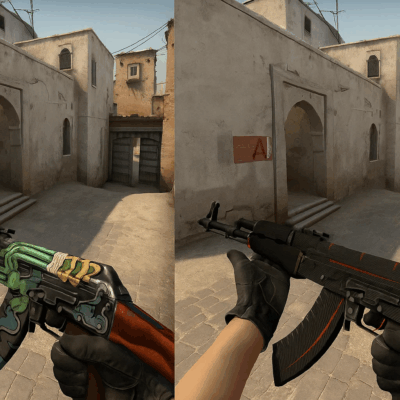The video game industry has evolved into one of the most dynamic and innovative sectors, captivating players with stunning visuals, intricate mechanics, and compelling stories. Behind every successful game lies an essential tool that enables developers to create these experiences efficiently and effectively: the game engine. These powerful frameworks form the foundation of game development, offering the tools and resources needed to transform creative visions into reality. Here, we explore why game engines are indispensable to modern game development and how they shape the future of gaming.
What Are Game Engines and Why Are They Important?
Game engines are comprehensive software platforms that provide the core components needed for game creation. They include tools for rendering graphics, processing physics, handling audio, and managing gameplay mechanics. By centralizing these systems, game engines streamline the development process, making it more accessible and efficient.
The significance of game engines lies in their ability to save time and resources. Without them, developers would need to build every aspect of a game from scratch, from graphics rendering to input processing. This would make game development prohibitively time-consuming and expensive. Game engines provide pre-built solutions, enabling teams to focus on innovation and storytelling instead of technical minutiae.
Additionally, game engines foster collaboration across disciplines. Designers, programmers, and artists can work together in a unified environment, ensuring consistency and enabling seamless integration of their contributions. This collaborative capability is especially critical in larger projects, where coordination is key to success.
Simplifying Complex Processes
Creating a video game involves solving a host of technical challenges, from building realistic environments to simulating physics. Game engines simplify these complexities by offering developers pre-built systems and tools that save time and effort.
For example, rendering the process of turning 3D models and textures into detailed visuals is a fundamental aspect of game development. Engines like Unreal Engine and Unity include advanced rendering systems that handle dynamic lighting, shadows, and special effects. These tools enable developers to achieve high-quality visuals without writing extensive code from scratch.
Similarly, game engines provide robust physics systems to manage object interactions, collisions, and environmental behaviors. These features allow developers to simulate realistic movements and interactions, enhancing immersion. By relying on these ready-made solutions, developers can focus on refining gameplay and storytelling, resulting in more polished and engaging experiences.
Supporting Cross-Platform Development
Modern gamers expect their favorite titles to be available on multiple platforms, from PCs and consoles to mobile devices and VR systems. Game engines are instrumental in meeting this demand by enabling cross-platform development. This capability allows developers to create a game once and deploy it across various platforms with minimal adjustments.
Unity, for instance, is renowned for its flexibility in supporting diverse platforms, including Windows, PlayStation, Android, and VR devices. This adaptability not only reduces development time but also ensures consistent performance and player experience across devices.
Cross-platform development also simplifies updates and bug fixes. With a unified codebase, developers can implement changes efficiently and ensure compatibility across all platforms. This streamlined process saves time and resources, helping studios focus on delivering quality content to players.
Types of Game Engines
The variety of game engines available today reflects the diverse needs of the gaming industry. Each engine is designed with specific features that cater to different types of projects, from AAA blockbusters to indie experiments and mobile games.
For example, Unreal Engine is known for its ability to create stunning, photorealistic visuals, making it a favorite for high-budget productions. Unity, on the other hand, is celebrated for its versatility, supporting everything from 2D games to complex VR experiences. Open-source options like Godot have gained popularity among indie developers due to their flexibility and affordability, offering robust tools without the burden of licensing fees.
Choosing the right engine requires a careful evaluation of features such as scalability, ease of use, and platform compatibility. Each engine’s unique strengths make it suitable for different project goals, ensuring developers can find the perfect match for their creative vision.
Empowering Creativity Through Assets and Tools
Game engines are not just technical frameworks; they are enablers of creativity. Many engines offer extensive libraries of assets, templates, and plugins that developers can use to experiment with new ideas and build unique gameplay experiences.
Platforms like Unity’s Asset Store and Unreal Engine’s Marketplace provide ready-made models, animations, and scripts. These resources allow developers to prototype concepts quickly and test mechanics without starting from scratch. For smaller studios, these tools are invaluable, leveling the playing field by granting access to professional-grade resources.
This democratization of game development has resulted in a surge of innovation. Indie developers, in particular, have benefited from these tools, creating a wave of diverse and imaginative games that challenge traditional boundaries and captivate players worldwide.
Driving Technological Innovation
Game engines are at the forefront of technological advancements in the gaming industry. They integrate cutting-edge features such as real-time ray tracing, procedural generation, and AI-driven tools, enabling developers to push the boundaries of what games can achieve.
Ray tracing, for example, has revolutionized graphics by simulating lifelike lighting and reflections. Engines like Unreal Engine incorporate this technology seamlessly, allowing developers to create visually stunning worlds that immerse players. Similarly, AI tools within engines enhance NPC behaviors, procedural content creation, and player analytics, reducing development time while improving the quality of the final product.
These innovations extend to emerging fields like virtual and augmented reality, where game engines play a vital role in creating immersive experiences. As new technologies continue to evolve, game engines remain essential for integrating them into the development pipeline.
Catering to Developers at All Levels
Game engines are designed to accommodate developers of varying skill levels, from beginners exploring the basics to professionals crafting AAA blockbusters. This inclusivity has helped expand the gaming industry, making it more accessible than ever before.
For newcomers, engines like Unity offer user-friendly interfaces, comprehensive tutorials, and vibrant online communities. These resources help aspiring developers learn the fundamentals of game creation and build confidence in their abilities.
Experienced developers benefit from advanced customization options that allow for fine-tuning performance and creating bespoke systems. Whether working on a small indie project or a complex AAA title, game engines provide the tools and flexibility needed to bring any vision to life.
Final Thoughts
Game engines are the backbone of successful game development, providing the frameworks, tools, and resources necessary to bring creative visions to life. By simplifying complex processes, enabling cross-platform compatibility, and driving technological innovation, they empower developers to craft immersive and engaging experiences.
As the gaming industry continues to evolve, game engines will remain at the heart of this transformation. Their ability to adapt and grow alongside emerging technologies ensures they will play a pivotal role in shaping the future of gaming. For developers of all levels, mastering the use of game engines is essential to creating the next generation of unforgettable games.









